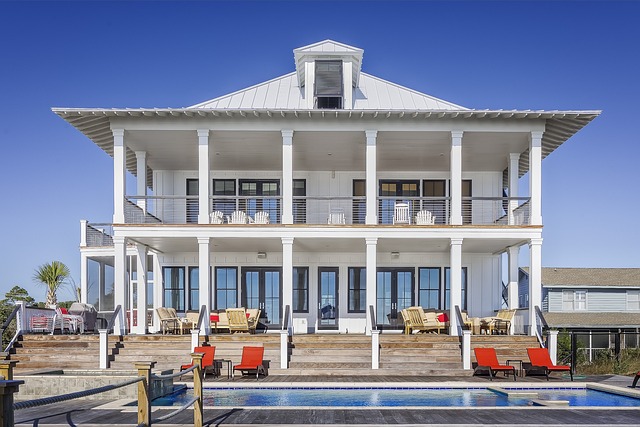Executive Condominiums (ECs) in Singapore are a unique housing option that blends elements of private condominium living with the advantages of public housing subsidies. They cater to both first-time homeowners and upgraders, with projects like Parc Canberra, Piermont Grand, and The Visionaire offering diverse unit types across the island for convenience and connectivity. To be eligible for an EC, applicants must meet specific criteria set by the Housing & Development Board (HDB), including income ceilings and being first-time flat owners, which can vary for singles and couples. After satisfying the minimum occupation period (MOP), ECs transition to private living status, allowing subletting or resale without restrictions. The Council for Estate Management (CEM), HDB, and other statutory boards oversee a legal framework that governs all aspects of EC ownership and residence, including resale and subletting processes. This framework is subject to updates and changes to ensure market fairness and adherence to housing guidelines, with the Availability of ECs in Singapore being influenced by these policies. It's crucial for prospective buyers and tenants to stay informed about these regulations and consider consulting real estate professionals for guidance through the purchase or lease journey of an EC.
Navigating the real estate landscape in Singapore presents a variety of housing options, with Executive Condominiums (ECs) offering a unique blend of benefits for first-time homeowners and upgraders alike. This article delves into the intricacies of EC living, from understanding what an EC is to the legalities involved in purchasing, reselling, or subletting these properties. We’ll explore the eligibility criteria for acquiring an available EC in Singapore, the comprehensive legal framework governing them, and the processes entailed in resale and subletting. Insightful guidance awaits those looking to invest in or reside within these versatile housing solutions.
- Understanding Executive Condominiums (ECs) in Singapore: A Comprehensive Guide to Available ECs
- Eligibility Criteria for Purchasing an Executive Condo: Who Can Apply for Available ECs in Singapore
- Legal Framework Governing Executive Condos: Rights, Obligations, and Regulations for EC Owners and Residents
- The Resale and Subletting Process of Executive Condos: Legal Steps and Considerations in Singapore
Understanding Executive Condominiums (ECs) in Singapore: A Comprehensive Guide to Available ECs

In Singapore, Executive Condominiums (ECs) serve as a housing option that caters to both first-time homeowners and upgraders. These hybrid homes blend the benefits of private condominium living with public housing subsidies, making them an attractive choice for many. Prospective residents should familiarize themselves with the unique features of ECs, including their initial eligibility requirements, which are different from those for both HDB flats and private condos. As of the latest update, available ECs in Singapore include projects like Parc Canberra, Piermont Grand, and The Visionaire, among others, each offering a diverse range of unit types to suit various lifestyle needs. These developments are strategically located across different parts of the island, ensuring that residents enjoy convenience and connectivity to various amenities, as well as the MRT stations, making them ideal for families looking to stay close to essential services without compromising on quality living standards. It’s advisable for potential buyers to study the eligibility criteria for purchasing an EC, as these homes are designed for Singaporeans who are ready to purchase a flat that is less restrictive than an HDB flat but not as flexible as a private condo upon meeting the criteria for privatization after a certain period. Understanding the nuances of EC ownership, including the resale and privatization processes, is crucial for those considering this type of property in their housing journey.
Eligibility Criteria for Purchasing an Executive Condo: Who Can Apply for Available ECs in Singapore

Prospective buyers interested in purchasing an Executive Condo (EC) in Singapore must first meet specific eligibility criteria set by the Housing & Development Board (HDB). Singles, including both male and female applicants, are eligible to apply for an EC provided they do not own or have an outstanding flat application with HDB. For couples, at least one applicant must be a Singapore citizen, and the other must either be a Singapore citizen or a Singapore permanent resident. Couples intending to apply must also not own or part-own any private residential property or have applied for a flat from the Open Sales flat program, as well as not have disposed of any residential property within the past 30 months. Furthermore, applicants must fulfill the Monthly Household Income Ceiling set by HDB, ensuring their income does not exceed this limit to be considered for an EC. These criteria are designed to ensure that ECs are accessible to eligible first-time homeowners, allowing them to enjoy the benefits of a larger and more luxury living space compared to a standard HDB flat, without being priced out of the private property market.
Legal Framework Governing Executive Condos: Rights, Obligations, and Regulations for EC Owners and Residents

In Singapore, Executive Condominiums (ECs) serve as a housing option for both singles and families, offering a hybrid of public and private housing benefits. The legal framework governing ECs is delineated by the Council for Estate Management (CEM), Housing & Development Board (HDB), and other statutory boards that dictate the rights, obligations, and regulations for owners and residents. Prospective EC owners should be well-versed in these guidelines, which include eligibility criteria, subsidy schemes, and minimum occupation period stipulations. For instance, under the Housing and Urban Development (Housing) Act, individuals must satisfy specific criteria to qualify for an EC, such as income ceilings and being first-time flat owners. Moreover, EC residents enjoy rights akin to those living in private condominiums upon completing their minimum occupation period, which includes the right to sublease or sell their units on the open market. It is imperative for EC residents to adhere to the regulations set forth by these governing bodies, including maintenance fees payment and compliance with the Master Plan to ensure sustainable development. Residents should also stay informed about updates in the legal framework as policies may evolve over time, influencing the availability of ECs in Singapore and their associated privileges. The legal framework is designed to protect the interests of both owners and residents, ensuring a harmonious living environment within these developments.
The Resale and Subletting Process of Executive Condos: Legal Steps and Considerations in Singapore

In Singapore, the resale and subletting process of Executive Condos (ECs) is governed by a set of legal frameworks that prospective buyers and tenants must navigate to ensure compliance. For those interested in purchasing an available EC, it’s crucial to understand that these units are designed for Singapore citizens or permanent residents who, after fulfilling certain criteria, can later sublet their unit to eligible Singaporeans or individuals who meet the necessary criteria set forth by the Central Provident Fund (CPF). Prospective resellers or sublessees must verify the eligibility of potential buyers or tenants as per CPF guidelines and the terms of their original purchase agreement. The Singaporean government has established strict regulations to maintain a fair and orderly market for ECs, which include a five-year minimum occupation period before an EC unit can be sold on the open market or sublet. This stipulation aims to protect the interests of both the initial buyers and the broader housing market in Singapore.
The legal process for reselling or subletting an EC begins with a thorough review of the original sale agreement, which outlines the terms under which the unit was initially purchased. Sellers must adhere to these conditions, ensuring that all necessary approvals are obtained from relevant authorities before the transaction can be completed. Sublessees, on the other hand, are required to submit an application for subletting to the town council or management corporation strata title (MCST) of the EC development. This application must include proof of eligibility and a declaration that the unit will be occupied by an eligible Singaporean or permanent resident. It’s imperative to keep abreast of the latest regulations, as they can evolve with policy changes or new housing market directives. Engaging with real estate professionals who specialize in EC transactions is advisable to navigate these legal steps and considerations effectively.



